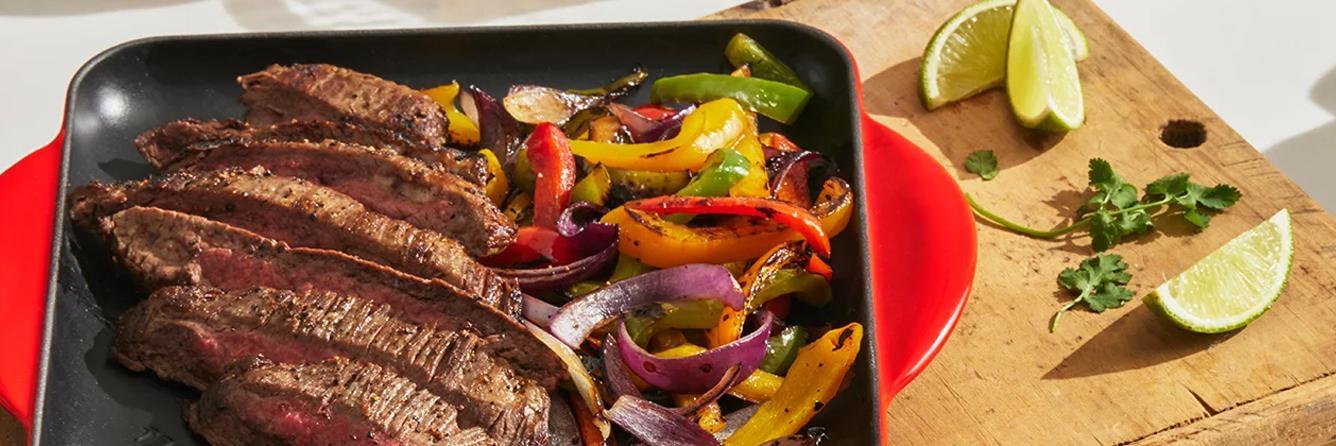
What is Induction, Benefits of Induction Cookware, & FAQs Article
Although cooking with gas or electric stovetops has remained the standard for several years, many people have started turning to induction cooktops. Induction cooktops are powered by a self-created electromagnetic field, which eliminates the need for gas and reduces electricity consumption. Not only are induction cooktops more energy-efficient, but they also have a reputation for being safer to operate. While there are many benefits to adding an induction cooktop to your kitchen, the uncertainties surrounding induction cooking can be intimidating. We've created this helpful guide to help you better understand the process of induction cooking, explain the benefits, and answer any questions that might arise while using an induction cooktop.
How do Induction Cooktops Work?
Induction cooktops are powered using a magnetic coil between the cooktop and the base of the cookware. When powered on, the flow of electricity through the coil will produce a magnetic field that flows around and to the surface of the cooktop. Induction cooktops will not work with cookware that is not induction compatible, as it needs an alternating current to generate heat. This means only cookware that has a magnetic base can be used on induction stovetops.
What Cookware is Induction Compatible?
Cookware materials such as cast iron, enameled cast iron, and stainless steel (as long as the base of the cookware is made with magnetic-grade stainless steel) are all induction-ready. The two main cookware materials that are not induction-ready are pure copper and aluminum. However, some cookware brands that produce copper or aluminum pans may make a special line within their brand that is induction compatible (usually by adding an induction-ready material to the bottom of the pan).
How Do I Know if my Cookware is Induction Compatible?
To know if your cookware is induction compatible, you can hold a magnet to the bottom and if it clings, it can be used on an induction cooktop. You can also check the base of your cookware for an induction-ready symbol. While many popular cookware brands are induction-ready, you'll want to make sure to always read the product description when shopping online to know for sure.
What are the Benefits of Induction Cooking?
- Faster Heating: Induction cooktops only heat up when in direct contact with the cookware. This means heat is conducted directly inside of the pan, which allows for more precise heating that is up to 40% quicker than traditional stovetops. Because traditional cooktops heat the cooktop surface or burners themselves, some heat is lost to the air which prevents pots and pans from reaching the desired temperature quicker. With induction heating, the pan itself is the heat source, which not only allows the pan to reach the desired temperature quickly, but it also saves energy.
- Energy Efficiency: According to Energy Star, residential induction cooktops perform more efficiently than electric or gas stovetops by reducing energy use and minimizing greenhouse gas emissions. Recognized with the Energy Star Emerging Technology Award for 2021-2022, residential induction cooktops operate 5%-10% more efficiently than electric stovetops and 3 times more efficiency than gas stovetops. Energy Star goes on to explain that, “If all Cooking Tops sold in 2021 in the U.S. used induction technology and met these draft criteria, the energy cost savings would exceed $125 million and the energy savings would exceed 1,000 GWh.” Simply put, induction cooking is a simple and effective way to reduce your carbon footprint and make more earth-conscious decisions in your home.
- Safer Operating: Another benefit of using an induction cooktop is the safety it offers to the user. Because the pan creates the heat source on an induction cooktop, there is no open flame or heat conduction without cookware present. This means it is much less likely for accidental burns to occur. In addition to this, most induction burners have built-in safety features that will automatically shut the burner off when pots boil dry or if it is left on for an extended period of time.
- Easier Cleaning: It is no secret that scrubbing your stovetop can be time consuming and difficult. Gas burners require some disassembly, while electric glass stovetops are easy to scratch and can be difficult to clean due to baked on messes. In contrast, induction cooktops are low-maintenance and can simply be wiped clean. Because the heat source is the pan, it is less likely that foods will bake onto the induction cooktop as thoroughly. Baked on foods can gently be scraped off and easily wiped away.
- Temperature Control: Waiting on electric stovetops to reach temperature can be time consuming, and keeping a consistent temperature with gas stovetops can be challenging, but induction burners can solve both of these problems. They offer super-precise temperature control, letting you adjust the heat level in seconds and stop the heat transfer with a press of a button - preventing boiled-over pots and burned foods.
Induction Cookware FAQs:
Q: What induction cookware is best?
A: Finding quality induction-ready cookware can be easy, however, it is important to do your research and read product descriptions to ensure which cookware will be the best fit for your kitchen. Trusted cast iron enamelware brands such as Le Creuset and Staub are perfect for induction cooking, while other brands may offer their own line of induction cookware. While cast iron cookware offers exceptional heat retention and is compatible with a wide range of heat sources, it can be quite heavy. If you are interested in lighter-weight cookware, we love Swiss Diamond’s XD Induction line, KitchenAid’s Hard Anodized Induction line, as well as All-Clad’s D3 Stainless Steel line.
Best Stainless Steel Induction Cookware Brands
Best Cast Iron & Enameled Cast Iron Induction Cookware Brands
Best PFAS-Free Nonstick Induction Cookware Brands
Q: Can induction cookware be used on gas, ceramic, or electric stovetops?
A: Almost all induction-ready cookware is safe for use with gas, electric, or ceramic stovetops. Some induction cookware, however, might be too thin for use with standard stovetops or may have been sprayed with magnetic coatings to ensure induction-compatibility. This can cause cookware to warp or for toxic fumes to be released in your kitchen. It is important to consult your cookware’s manufacturer or the manual before using induction-ready cookware on a gas range or electric stovetop.
Q: Can my induction cookware go in the oven?
A: Sometimes yes and sometimes no. Similar to using induction cookware with other stovetop types, it is important to consult the manufacturer to ensure your cookware is safe for oven use. Most stainless steel or cast iron enamelware will be safe for use in the oven, however, thinner cookware pieces will not be safe for oven use due to the possibility of damage to the cookware.
Q: How do I know if my cookware is induction-ready?
A: The simplest way to ensure your cookware is induction-ready is by holding a magnet to the bottom of the pan. If it sticks, it will work with your induction stovetop. You can also check the bottom of your cookware or the cookware manual for an induction-ready symbol.
Q: Is induction cookware dishwasher-safe?
A: Whether or not your induction cookware is dishwasher-safe depends on the cookware. Most stainless steel cookware is dishwasher-safe, however, other cookware materials should be washed by hand to maintain the integrity. While one or two dishwashing cycles will not destroy your cookware, continuous exposure to abrasive detergents and high-temperature washes can damage cookware over time. Be sure to check your cookware’s manufacturer recommended care before washing in a dishwasher.
Q: Where can I buy induction cookware?
A: Right here at Everything Kitchens! Shop our entire collection of induction-ready cookware here!
While it is easier to navigate cooking tasks with nonstick cookware, the peace of mind obtained from cooking with PFAS-free cookware is worth the learning curve. By following a few simple steps and care instructions, you will be able to tackle recipes with other cookware materials like a pro. Whether you plan on searing steaks in a stainless steel skillet or preparing a perfectly folded omelet in a ceramic nonstick pan, we at Everything Kitchens have the tools you need to make more mindful, toxin-free choices in your kitchen. Shop our entire selection of PFAS-free cookware here!

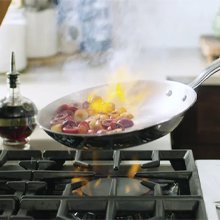
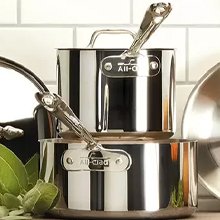
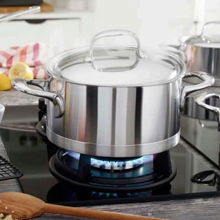
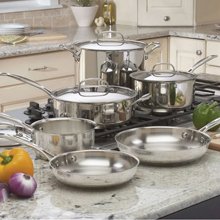

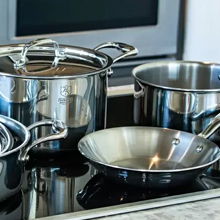
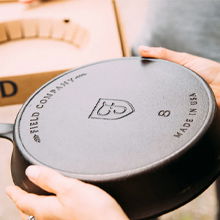
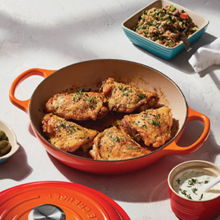
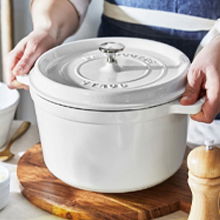
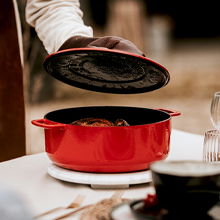
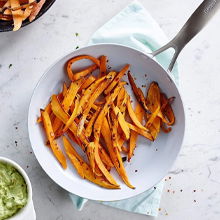
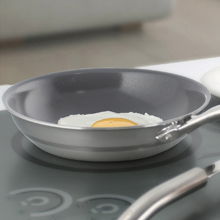

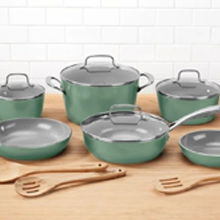

 KitchenAid
KitchenAid Fiesta®
Fiesta® Bosch
Bosch All-Clad
All-Clad Cuisinart
Cuisinart OXO
OXO Breville
Breville Le Creuset
Le Creuset Blendtec
Blendtec Wusthof
Wusthof Bormioli Rocco
Bormioli Rocco Vitamix
Vitamix Emile Henry
Emile Henry DeLonghi
DeLonghi Mason Cash
Mason Cash Nordic Ware
Nordic Ware ZWILLING
ZWILLING Kilner
Kilner Staub
Staub Swiss Diamond
Swiss Diamond TeakHaus
TeakHaus Ankarsrum
Ankarsrum LEM
LEM Weston
Weston Moccamaster
Moccamaster Mercer
Mercer All American 1930
All American 1930 CucinaPro
CucinaPro SMEG
SMEG Toddy
Toddy Everything Kitchens
Everything Kitchens
